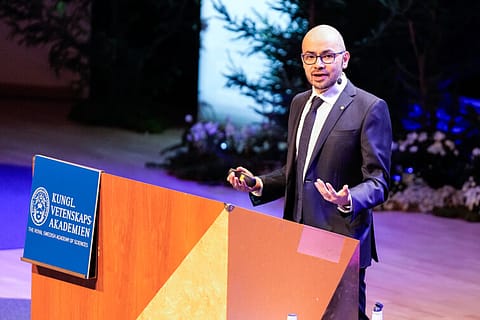‘New jobs are coming’: DeepMind CEO and Nobel Laureate Demis Hassabis says only STEM skills will matter in the AI era
At SXSW London, Google DeepMind CEO and Nobel Laureate Demis Hassabis said AI will create new jobs but only technically fluent individuals with STEM skills will thrive in the AI-driven future.

In the end, only the technically fluent will survive and thrive. As artificial intelligence reshapes the global labour market, Google DeepMind CEO and Nobel Laureate, Demis Hassabis said that in a world shaped by AI, the future will belong to those who are technically able.
Speaking at the South by Southwest (SXSW) festival in London on Monday, Hassabis said AI will inevitably replace many existing roles. Even if that happens, Hassabis pointed out that it will also unlock a wave of “very valuable” new jobs, particularly for those who understand the systems driving the change.
“New jobs will appear and AI will supercharge technically savvy people who are at the forefront of using these technologies,” he said.
The comments come amid a groundswell of concern about the pace at which AI is disrupting traditional employment, from customer service to software engineering. Still, for Hassabis, this moment echoes the dawn of previous economic shifts—from mechanisation to the internet age. Only this time, the transformation could be “even bigger than the Industrial Revolution.”
The British AI pioneer, who won the Nobel Prize in Chemistry in 2024, advised that if he were a student today, he would still pursue STEM—science, technology, engineering and mathematics—despite the rapid evolution of AI.
“It’s still important to understand fundamentals,” Hassabis said, referring to mathematics, physics, and computer science. “These are the building blocks of understanding how AI systems are constructed and how to best interact with them.”
His remarks are consistent with Google DeepMind’s broader stance that while AI may soon exceed human performance in specific tasks, general intelligence still requires deep foundational thinking and technical literacy.
Recommended Stories
Hassabis and Google co-founder Sergey Brin have even gone so far as to suggest that artificial general intelligence (AGI)—the point at which machines match or surpass human intellectual capabilities—could emerge by as soon as 2030.
That looming prospect puts added pressure on today’s students and professionals alike to adapt. Hassabis offered blunt advice: go beyond the classroom. “I’d be experimenting with all the latest AI systems and tools,” he said, “and seeing what’s the best way of utilising them in useful and novel ways.”
That hands-on approach may prove vital as businesses across industries integrate AI for everything from code generation to hiring. As AI-native generations begin entering the workforce, Hassabis believes those who can navigate and exploit these tools creatively will enjoy a decisive edge.